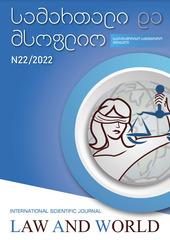FOREIGN LAW IN INTERNATIONAL ARBITRATION 
##plugins.themes.bootstrap3.article.main##
Abstract
Arbitration is the most common form of dispute resolution in international transactions and commercial relations. The reason for its success is attributed to a number of advantages that arbitration has over court proceedings. There is no lex fori in international arbitration, it can be said that all laws are foreign. Because the principle of autonomy of the parties gives the parties the freedom – regardless of where the arbitration takes place – to decide which law to apply, a wide range of different laws apply to international arbitration proceedings. In international arbitration, in the context of competition between the laws of different countries, the arbitrators are faced with the choice of the law to be applied. They often have to apply law that is foreign to professional qualifications and common practice. The arbitrator may have difficulty ascertaining a substantive law as this law may be unfamiliar to her/him. Naturally the question arises, the task of determining the law to be applied rests entirely with the parties in accordance with the traditional approach of common law, if the arbitral tribunal is empowered to determine the content and resolve the dispute, as the court does in civil law.
##plugins.themes.bootstrap3.article.details##
Section
Articles
How to Cite
FOREIGN LAW IN INTERNATIONAL ARBITRATION. (2022). Law and World, 8(22), 163-176. https://doi.org/10.36475/8.2.12






